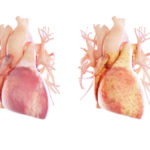By David Blyweiss, M.D., Advanced Natural Wellness
February 24, 2017
- Saunas slash risk of dementia by up to 66%
- They’re good for your heart, too
- Here’s how to get the most out of your sauna experience
If you live in the northern states the idea of a nice, steamy sauna probably sounds pretty good right around now.
But no matter where you live, enjoying a sauna on a regular basis may be just what you need for a healthy heart, lively brain and longer life.
The people over in Finland know all about the healing power of saunas. They enjoy them with striking regularity. As a matter of fact, the large majority of Finns take at least one sauna every week. Many take them even more frequently.
And the pay-off is huge.
Open your arteries, improve blood flow for a new health miracle...
Did you know your circulatory system has over 60,000 miles of arteries, veins and other blood vessels, if stretched end to end?
But as you age, your blood vessels undergo changes, which may cause them to stiffen, thicken and get clogged.
GOOD NEWS! Doctors have now identified a “Miracle Molecule” inside your arteries that helps OPEN your arteries and IMPROVE blood flow.
It’s what Dr. Valentin Fuster calls it, "One of the most important discoveries in the history of cardiovascular medicine."To you, that means...
- Healthy blood pressure
- Sharper mind and memory
- Skyrocketing energy and muscular strength
- Increased pleasure and passion in the bedroom
- Improved circulation to every cell and organ in your body
Go here to discover a new natural way to significantly boost the levels of this miracle molecule in YOUR body NOW!
One of the most appealing aspects of frequent sauna use is that it could protect you from Alzheimer’s disease and dementia.
In fact, when researchers followed a group of Finnish men for 20 years, those who took part in two to three sauna sessions a week slashed their risk of dementia by a whopping 66%.
And these weren’t excruciatingly long visits to the sauna bath. In fact, the average length of each visit was only about 15 minutes.
But that’s not all…
Saunas are great for Your Heart – And More!
Are You Suffering From...
- Love handles and a pot belly
- Romance that isn't what it used to
- Forgetfulness and inattention
- Low (or no) strength and endurance
- A sex drive that's shifted into neutral...or worse
If so...you may have Mature Male Burnout. Click here to discover more about this unique condition and what you can do about it.
It also turns out that regular sauna use can greatly boost your cardiovascular health. These heat baths help improve blood flow, boost the health of your blood vessels, improve cholesterol profiles and help to lower triglyceride levels.
The effects are so great that taking a sauna just two or three times a week can cut your risk of a sudden coronary death by about a quarter. And using one four or more times each week could cut the risk by more than two-thirds.
Now, I don’t know about you, but spending 15 minutes a few days a week to protect your heart and brain isn’t a lot of time.
Plus, there are many more health advantages associated with taking part in traditional Finnish saunas. They can help boost your lung function, relieve depression, cut your chances of catching a cold and lower blood pressure.
How to Safely Use the Sauna
The health results that come with taking regular saunas are so startling that just 15 minutes can be compared to a bout of low- to moderate-intensity exercise training. That’s because the high temperatures cause your heart rate to climb, just like exercise does.
And while I don’t suggest giving up regular physical activity for saunas, I do think it’s to your benefit to make saunas a part of your life. Just a few minutes a day, three to four times a week is all it takes to achieve health improvements.
Now, a sauna isn’t the same thing as a steam room. In fact, traditional Finnish saunas are relatively dry air, with only 10% to 20% humidity. So you want to find a low humidity sauna that uses either a wood burning stove or operates on infrared.
Before enjoying your first sauna session, here are a few things to keep in mind.
- One thing you’re going to do in the sauna is sweat. This means your body is going to lose a lot of fluid. So make sure to drink a couple of glasses of water beforehand. Then, replenish with another glass or two afterward.
- Your body probably won’t be able to handle the heat stress for very long to start with. Nor is it a good idea to sweat out a boatload of toxins all at once. So start off slowly – say five minute sessions – and gradually build up to 15 minute sessions.
- The Finnish have strict rules in the sauna. It’s a place of peace and quiet… not a place to discuss business or complain about your problems. Use it as a time to relax and de-stress.
- Take a warm shower after exiting the sauna, then give your body a blast of cold water to seal off your pores.
- If you have a heart condition such as angina or a recent heart attack, lung disease or other serious health concern, talk to your doctor about the advisability of sauna use. They may be contraindicated for your condition.
SOURCES:
Imamura M, et al. Repeated thermal therapy improves impaired vascular endothelial function in patients with coronary risk factors. J Am Coll Cardiol. 2001 Oct;38(4):1083-8.
Gryka D, et al. The effect of sauna bathing on lipid profile in young, physically active, male subjects. Int J Occup Med Environ Health. 2014 Aug;27(4):608-18.
Laukkanen T, et al. Association between sauna bathing and fatal cardiovascular and all-cause mortality events. JAMA Intern Med. 2015 Apr;175(4):542-8.
Laukkanen T, et al. Sauna bathing is inversely associated with dementia and Alzheimer’s disease in middle-aged Finnish men. Age Ageing. 2016 Dec 7. [Epub ahead of print]
Crinnion WJ. Sauna as a valuable clinical tool for cardiovascular, autoimmune, toxicant- induced and other chronic health problems. Altern Med Rev. 2011 Sep;16(3):215-25.






